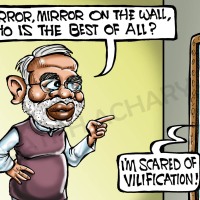9 December 2012

Open letter to the WCIT
Dear Secretary General Touré and WCIT-12 Chairman Al-Ghanim:
We, the undersigned members of civil society, are attending the ongoing World Conference on International Telecommunications (WCIT-12), both physically and remotely. We appreciate your efforts to engage with global civil society and trust that you will take this letter in the same spirit of constructive engagement.
We believe that openness and transparency should be the hallmark of any effort to formulate public policy. In the months approaching the conference, and in our experience at the WCIT so far, we have discovered that certain institutional structures continue to hamper our ability to contribute to the WCIT process in a meaningful and constructive manner.
Now that the conference is in session, we wish to call your attention to three immediate and pressing matters: the lack of any official standing to the public comments solicited prior to WCIT at the ITU’s invitation; the lack of access to and transparency of working groups, particularly the working groups of Committee 5; and the absence of mechanisms to encourage independent civil society participation. We address these in detail below.
Public Comment Solicited By ITU Effectively Excluded. Prior to the WCIT, the ITU assured civil society that it would provide an opportunity for meaningful input through public comment. As many organizations explained at the time, the inability to see specific country proposals compromised the ability to offer a detailed response. Nevertheless, primarily based on documents leaked to the public, 22 organizations from four regions expended considerable resources and effort to make the most of this single, albeit highly limited, opportunity to engage on the substance of the proposals as they existed at that time.
Unfortunately, the ITU has provided no mechanism for inclusion of the public comments in the WCIT working papers. They are not made accessible through the document management system (TIES) in the same manner as proposals submitted by members, nor are any of the comments reflected in the numerous working drafts reviewed by WCIT delegates. As a consequence, delegates appear entirely unaware of these comments, and the diligent work of civil society organizations that accepted the ITU’s invitation to participate through the public comment process is in danger of being lost. From a practical standpoint, the possible help these public comments could provide in resolving some of the contentious issues before the WCIT is wasted.
We have no doubt that the invitation to submit public comment was extended in good faith, and believe that the lack of any mechanism for including these comments in the deliberations of the WCIT is a result of this being the first time the ITU has attempted this form of public engagement.
We ask that you work with us to find an effective manner to bring these public comments into the deliberations while they remain relevant, for example by including them as Information Documents (INF) in the document management system.
Lack of Transparency of the Working Groups. We applaud the decision to webcast Plenary deliberations and the deliberations of Committee 5. Nevertheless, the decision not to webcast or allow independent civil society access to the working groups, particularly the working groups of Committee 5, undermines this move toward transparency and openness. The decisions made by the WCIT will impact the global community. The global community deserves, at a minimum, to see how these decisions are made. By contrast, the failure to provide access to the working groups lends legitimacy to the criticism that the WCIT makes vital decisions about the future of the public Internet behind closed doors. While transparency cannot substitute for substantive engagement, it is a valuable end in itself that lends legitimacy to all public policy exercises.
We ask that you further enhance the transparency of the WCIT by allowing access to and webcasting of the Committee 5 working groups.
Absence of independent civil society participation. Finally, those of us attending who are not associated with a member state or sector member delegation are restricted in our ability to participate on behalf of civil society. We recognize this is not a deliberate effort to exclude civil society representatives, but a function of the ITU’s structural rules. Nevertheless, these restrictions hamper our ability to provide the WCIT with the benefits of an independent civil society perspective, and report back to the global community.
We are aware that several member state delegations have actively reached out to their civil society communities and included representatives of civil society in their member delegations. We commend the efforts made by these governments and encourage other governments to take similar action. Nevertheless, these civil society representatives are first and foremost members of their delegations and have limited opportunities to express an independent civil society view. While the participation of civil society representatives benefits both the member delegations and the WCIT’s deliberations as a whole, it cannot substitute for engagement with independent members of civil society.
We recognize that the current institutional structures do not facilitate independent civil society participation in the work of the ITU. Given that it is unlikely that institutional changes can be implemented during the WCIT, we ask that the two above issues be addressed immediately and that the ITU commit to reviewing and putting in place mechanisms that will encourage greater participation by civil society.
We wish to acknowledge your efforts to reach out to civil society and enhance openness and transparency at the WCIT. We hope you will take our concerns in equal good faith, and work with us to resolve these issues as expeditiously as possible.
We look forward to further discussions and to building upon these first steps of multi-stakeholder engagement.
Sincerely,
Access, International
African Information and Communications Technology Alliance (AfICTA), Regional
Article 19, International
Center for Democracy and Technology, USA
Center for Technology and Society/Getulio Vargas Foundation (CTS/FGV), Brazil
Delhi Science Forum, India
Free Software Movement of India
Global Partners and Associates, UK
Index on Censorship, UK
Internet Democracy Project, India
Internet Society Bulgaria
Internet Society Serbia, Belgrade
Karisma Foundation, Colombia
NNENNA.ORG, Côte d’Ivoire
Public Knowledge, USA
Society for Knowledge Commons, India
Software Freedom Law Centre, India
Wolfgang Kleinwachter, University of Aarhus, Denmark
We encourage other civil society organizations and their members to endorse this statement. Please email WCIT12civilsociety@gmail.com to add your support.

















